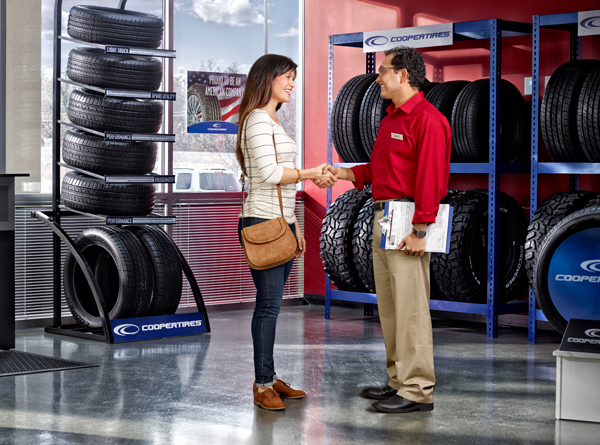- La Feria Community Holds Succesful Business Mixer Event
- Little Nashville to Take Place in Downtown Mercedes
- Lions Basketball Captures District Gold
- La Feria ISD Students Compete in Regional Chess Tournament
- Lions End First Half of 32-4A on a High Note
- La Feria ISD Held Another Successful Parent Conference
- Strong Appearance for Lions at Hidalgo Power Meet
- LFECHS Students Get to Meet Local Actress
- Students Participate in Marine Biology Camp
- Two LFECHS Students Qualify for All-State Band
Buying Tires for Your Car? What to Consider
- Updated: April 6, 2018
(StatePoint) Purchasing new tires for your car can be frustrating: an average of two hours is spent researching tires and 89 percent of all consumers experience some sort of buyer’s remorse, according to a consumer study by Cooper Tires.
To help, the experts at Cooper Tires are offering easy ways to identify when you need new tires, as well as tips on what to consider in the tire buying process.
The Penny Test
Tire tread should be more than 2/32 of an inch deep. Check by inserting a U.S. penny into the tread with Lincoln’s head facing down. If the top of Lincoln’s head is covered by tread, there’s at least a minimum acceptable amount of tread. If the top of his head is visible at any point, it’s time to replace your tires.
Even before tread is worn, regularly inspect tires for cuts, cracks, splits, punctures, bulges and uneven wear patterns. Also, replace all tires, (including full-size spares) that are 10 or more years older than their date of manufacture, or follow the vehicle manufacturer’s recommendations.
Know the Right Size
Like with shoes, buying the proper tire size is critical. Consult the information placard found on the driver’s side doorjamb, glove box, fuel door or vehicle manufacturer’s manual, which also contains technical specifications relating to your tire, including load carrying capacity, speed rating and recommended inflation pressures. For maximum safety and performance, follow these recommendations carefully.
If you don’t have this information handy, consult a tire professional to have all your questions answered, and check out the three-step tire guide from Cooper Tires, which can help you narrow down the choices by car/minivan, SUV/CUV or truck. You can find this guide at us.coopertire.com.
Other Considerations
There are many factors to consider when selecting tires to fit your needs, including the following:
- Do you need dedicated winter tires, dedicated summer tires or all-season tires? Think about where you travel over the course of the year.
- Do you have a long commute or take long road trips? Consider expected mileage, ride comfort, fuel efficiency and if the tires are quiet.
- Do you have a sports car or do a lot of spirited driving? You may need tires that focus on handling and are developed for high-performance cars.
- Do you drive in rain? Consider the tires’ wet braking distance.
- Do you drive off-road? If you spend a significant amount of time on mud tackling adventures, dedicated off-road tires may be your best bet.
At the Store
Be sure to ask what services are included in the quoted price. And remember, if your selected tires are not immediately available, you can often have them ordered. It may be helpful to call ahead if you know what you need. To find a retailer near you, visit us.coopertire.com/find-a-store.
Final Thoughts
Not all tire damage that can lead to tire failure is outwardly visible. Used tires, should be considered dangerous. Buy and install only new tires. Whenever possible, replace all tires at the same time. However, if you can only purchase two, the new pair should always be installed on the rear axle.
Your tires are the only parts of your car that connect to the road. Select tires carefully, then properly maintain and inspect them over time.



